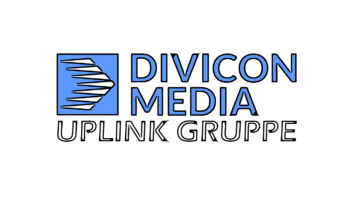I read with great interest the separate March 26 responses by Vince Nowicki and Tim Shamble (“BBG: Nostalgia Doesn’t Get the Job Done”) to the Feb. 1 article by Jack Quinn and Nick Olguin in Radio World.
Mr. Nowicki and I are former colleagues at the International Broadcasting Bureau, and I have nothing but the greatest personal and technical respect for him and the challenges of his present position there.
I do not think that either Mr. Quinn or Mr. Olguin are in basic disagreement with Mr. Nowicki over the importance of a proper “media mix” to reach the desired audience of the U.S. government (USG). The disagreement is over what that “mix” should be.
Most of the governments of the world the USG wants to reach are often somewhat hostile to the message, necessitating what has historically been called “cross-border” broadcasting.
This is why during the Cold War the broadcasts to the former Soviet Union, former Eastern Europe, China and much of formerly closed Southeast Asia, Africa and the Middle East, came from transmitting locations in Botswana, Germany, Greece, Morocco, Philippines, Portugal, Spain, Sri Lanka, Tinian and others, as well as stations in the United States — all cross-border stations under the almost total and complete control of the USG.
And it also is true that satellite radio and TV as well as the Internet are the most viable and valuable media to accomplish the same goal.
As Mr. Nowicki eloquently explained, and which is validated by current situations in Armenia, Tibet and other places, shortwave still has its place and is being used.
My disagreement with this scenario is that shortwave should not be an “emergency-when-all-else-fails” medium, but rather should be maintained and expanded as the Quinn/Olguin article stated.
Readers of Radio World are certainly aware of Digital Radio Mondiale, which has successfully demonstrated the ability to dramatically overcome the undesirable vagaries of analog shortwave, which have long been tolerated through necessity.
Yet the IBB, to my knowledge, while certainly following the developments of DRM, are not aggressively engaged in its success. This is in contradiction to other international broadcasters such as BBC, Deutsche Welle, Radio Canada, Radio Netherlands and many more who already are broadcasting in DRM in a regular schedule.
I have only one significant disagreement with Mr. Shamble’s letter.
I am the only person, to my knowledge, who has been DOE of both IBB Engineering (formally VOA before it became IBB) and Radio Free Europe/Radio Liberty (RFE/RL) Engineering.
RFE/RL was almost totally USG-funded, although a Maryland corporation. The IBB is a U.S. government federal entity.
It is certainly a misnomer to call RFE/RL “private” by any common definition of a private corporation. It, as stated above, was and is funded by the USG, but it was not (during my tenure there, anyway) subject to encumbering federal regulations such as federal procurement regulations, for example.
We were bound by a much simpler and more flexible, and more practical and more effective, OMB procurement guideline. RFE/RL was certainly not perfect nor 100 percent effective and efficient — no business is — but compared to the federally operated IBB, there is no comparison to what we were able to accomplish, usually with 1/10 to 1/20 the assets and staff, though we were roughly half the size of VOA then.
My boss at RFE/RL, E. Eugene Pell, also was the only president of RFE/RL who also had been the director of the VOA. He expressed to me on numerous occasions the same basic feeling I have described above, albeit on a much larger scale than just engineering matters.
George Woodard
McKinney, Texas












